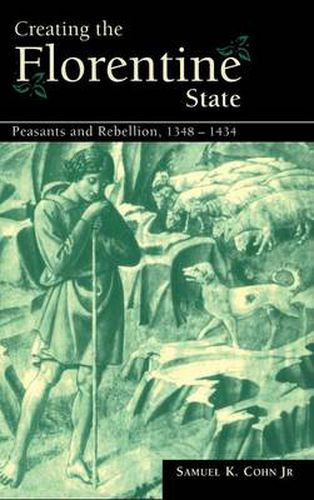Readings Newsletter
Become a Readings Member to make your shopping experience even easier.
Sign in or sign up for free!
You’re not far away from qualifying for FREE standard shipping within Australia
You’ve qualified for FREE standard shipping within Australia
The cart is loading…






This book offers a new approach to the study of the political history of the Renaissance: its analysis of government is embedded in the context of geography and social conflict. Instead of the usual institutional history, it examines the Florentine state from the mountainous periphery - a periphery both of geography and class - where Florence met its most strenuous opposition to territorial incorporation. Yet, far from being acted upon, Florence’s highlanders were instrumental in changing the attitudes of the Florentine ruling class: the city began to see its own self-interest as intertwined with that of its region and the welfare of its rural subjects at the beginning of the fifteenth century. Contemporaries either remained silent or purposely obscured the reasons for this change, which rested on widespread and successful peasant uprisings across the mountainous periphery of the Florentine state, hitherto unrecorded by historians.
$9.00 standard shipping within Australia
FREE standard shipping within Australia for orders over $100.00
Express & International shipping calculated at checkout
This book offers a new approach to the study of the political history of the Renaissance: its analysis of government is embedded in the context of geography and social conflict. Instead of the usual institutional history, it examines the Florentine state from the mountainous periphery - a periphery both of geography and class - where Florence met its most strenuous opposition to territorial incorporation. Yet, far from being acted upon, Florence’s highlanders were instrumental in changing the attitudes of the Florentine ruling class: the city began to see its own self-interest as intertwined with that of its region and the welfare of its rural subjects at the beginning of the fifteenth century. Contemporaries either remained silent or purposely obscured the reasons for this change, which rested on widespread and successful peasant uprisings across the mountainous periphery of the Florentine state, hitherto unrecorded by historians.